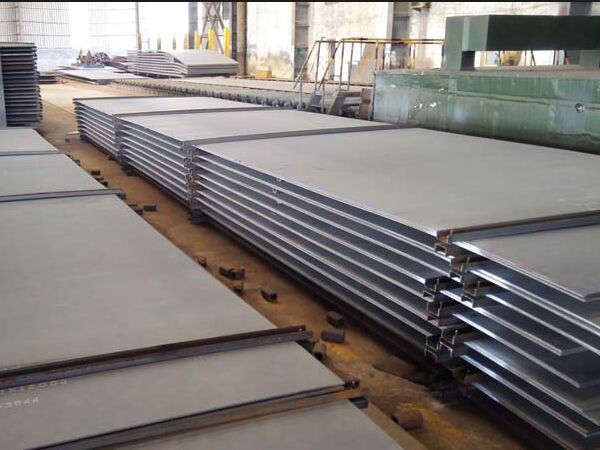What is shipbuilding steel plate?
Shipbuilding steel plates are specialized steel plates used in the manufacture of hulls and offshore platforms, usually with high strength, corrosion resistance and good weldability to adapt to the harsh Marine environment. Often used as special steel ordering, scheduling, sales, including ship plate, steel plate and so on.

Classification of shipbuilding steel plate: According to the minimum yield strength grade of shipbuilding steel plate, shipbuilding steel can be divided into general structural strength steel and high strength structural steel. General structural strength steel is suitable for the hull structure of small and medium-sized ships, such as the hull and deck of bulk carriers, cargo ships, fishing boats, etc. High-strength structural steel is generally used in the main mechanism part of large ships and offshore platforms, such as cruise ships, container ships, offshore drilling platforms, etc. There are also higher strength structural steel, these steel plates are generally used in some extreme environmental hull structures, such as icebreakers, deep-sea operations vessels, etc., can withstand the challenges of extreme cold and extreme pressure.
Shipbuilding steel plate production standards: All steel plate products can be produced according to the association LR, ABS, NK, GL, DNV, BV, KR, RINA, CCS and other standards.
Application of shipbuilding steel plate:
Freighters and tankers: main structural steel plates for large bulk carriers, tankers and container ships, such as hull, deck, keel, etc.
Offshore drilling platforms: Structural steel plates for offshore drilling platforms that require higher strength and corrosion resistance.
Ocean engineering vessels: such as icebreakers, tugboats, ocean rescue vessels, exploration vessels, etc., use high-strength and ultra-high-strength shipbuilding steel plates.
Shipbuilding steel plate selection factors:
Strength requirements: Select the appropriate strength grade steel plate according to the type and use of the ship.
Corrosion environment: For ships or platforms that are in a corrosive environment for a long time, steel plates with high corrosion resistance should be selected and surface anti-corrosion treatment should be carried out.
Low temperature adaptability: Ships used in extremely cold areas should choose steel plates with good low temperature performance, such as ice breakers need to use ultra-high strength steel plates.
Classification Society certification: To ensure that the steel plate meets the certification standards of the relevant classification society to ensure its safety and reliability.
In summary:
Shipbuilding steel plate is an indispensable basic material in shipbuilding and Marine engineering, and its performance directly affects the life, safety and operational stability of the ship.
Read more:Classification of shipbuilding plates
